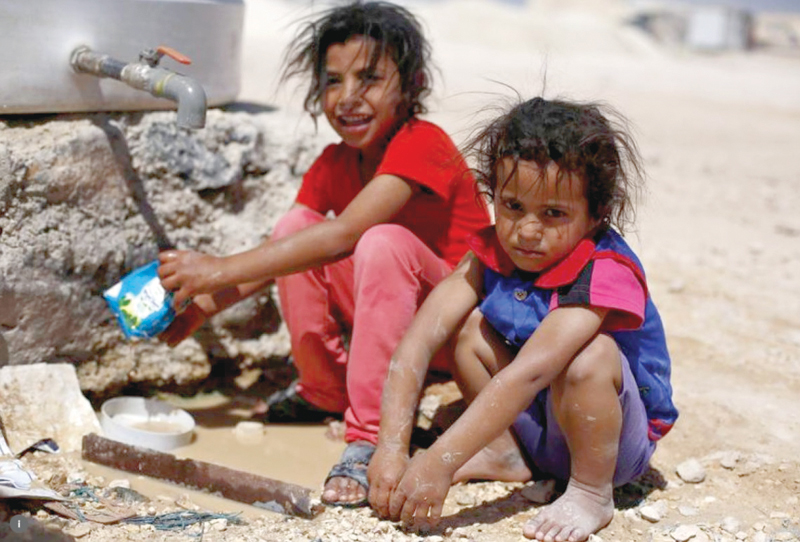

TORONTO/AMMAN: Hot, dry Jordan faces severe water shortages due to climate change and a refugee influx from neighbouring Syria, Stanford University scientists said in a study published last week.
In a scenario where greenhouse gas emissions continue at their current pace, Jordan is expected to experience a one-third drop in annual winter rainfall, alongside a 4.5 degree Celsius rise in average annual temperatures by 2100, said the study.
Droughts will increase in frequency, duration and intensity compared to the three decades before 2010, it added, suggesting that water stress is likely to exacerbate social tensions.
“Jordan is currently one of the most water-poor countries in the world,” said Stanford professor Steven Gorelick, one of the study’s authors.
“Beyond 2100, in the absence of additional fresh water supplies – a likely scenario is... groundwater is depleted, agriculture depends solely on treated waste water and rapid population growth through future adoption of refugees becomes an enormous challenge,” he told the Thomson Reuters Foundation.
More than 330,000 people have been killed in Syria’s war, and millions have been displaced since it began in 2011.
The Jordanian government says the country is now home to 1.4 million Syrians, of whom more than 660,000 are registered with the UN refugee agency, UNHCR.
Jordan today has an average annual water supply of 150 cubic meters per capita.
The United Nations says countries with less than 500 cubic metres per person face “absolute scarcity”.
Along with more thirsty mouths due to the arrival of refugees in Jordan, the conflict in Syria has disrupted water management infrastructure in the Yarmouk-Jordan River system.
Flow in the river is expected to decrease by up to 75 per cent by 2050 compared to its historical average, as a result of human and natural influences in Syria, the study said. — Reuters
Oman Observer is now on the WhatsApp channel. Click here



